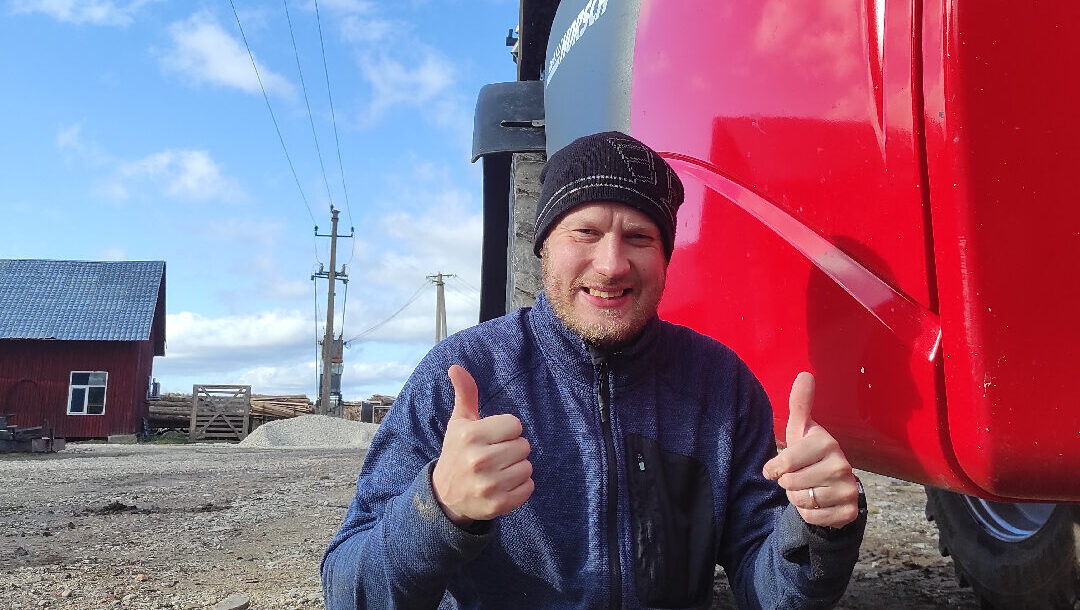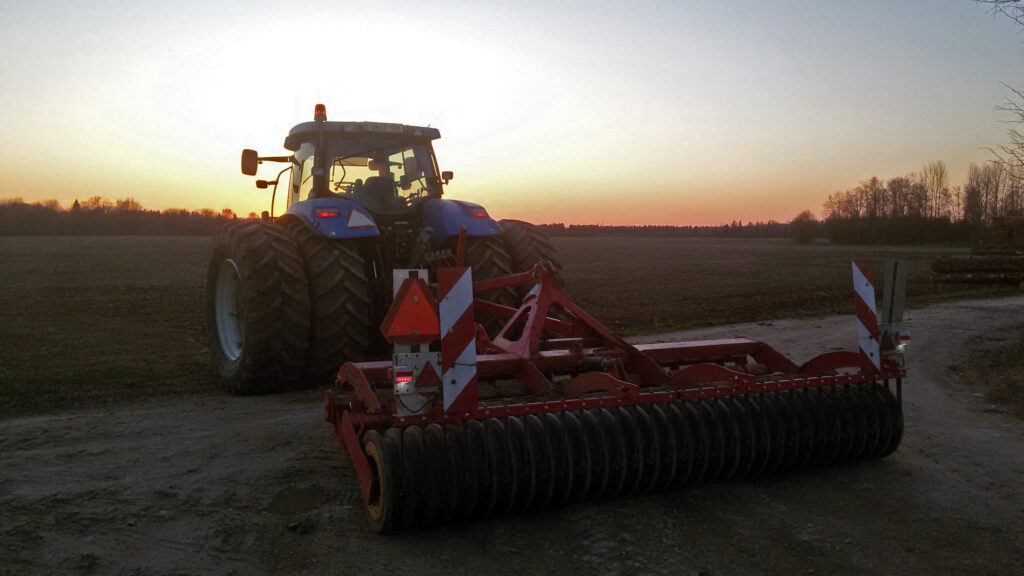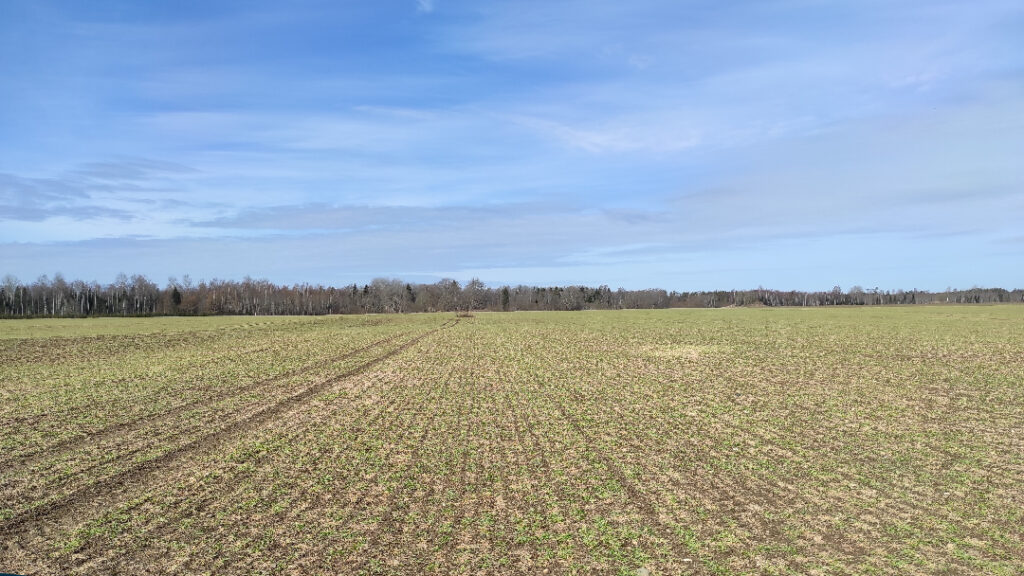If you’re experiencing depression or other mental health concerns, seek help from professionals!
I was inspired to write by a recent question from a salesman who didn’t even come to sell me tractors and farming tools, “How do you feel mentally?”.
Such questions are not often asked or have they been asked at all?! As an Estonian man, we are accustomed to burying our feelings in work, alcohol, or something worse. I’m by no means a “lifecoach” and I don’t have a degree in human psychology. I’m just a person who does his thing with great passion and emotion. And today, I have time to analyze these feelings. Perhaps it will help someone else improve their emotional balance.
I haven’t directly experienced depression or burnout, but I think I’ve been pretty close to it at certain times.
You know that feeling when nothing goes right on some days, everything possible falls apart, the weather is bad, and grain prices are low. As a starting farmer, I felt it quite a lot, this heavy burden on my shoulders, feeling like my head is stuffed with cotton, and you desperately try to find some mental balance so as not to just throw everything to hell.
Now, having more experience, I’ve realized that this is actually the everyday reality of agriculture, and the pursuit of perfection is just adding unnecessary stress. In the agricultural business, there’s a whole list of factors that I can’t directly or indirectly influence. Here, I’ll discuss some points that affect farmers’ mental health and how I approach them.
Unsuitable weather
Machines are ready, men are ready, only the weather doesn’t allow harvesting, spraying, planting, consistently ruining winter crops or destroying summer crops. The weather is constant, something we can’t influence in any way, we just have to constantly adapt to it. Over my relatively short (13 years) career as a farmer, I’ve cursed the weather a million times, but lately I’ve started asking myself what I’ve done to be less affected by it.
- Have I started experimenting with new varieties (including hybrids that could be more drought- and winter-resistant)?
- Do I use the time when there’s nothing to do in the fields to check the condition of my machinery and equipment?
- If Plan A doesn’t work due to the weather, do I have Plan B or C in place?
- Am I growing enough different crops to spread risks?
- Do I have enough skills to do the work quickly and efficiently?
- When making investments, do I buy a new and smaller machine to be sure of its condition or a used and larger machine to get the work done faster?
- Do I have a plan for the beginning of the season in case prices are even lower and yields even smaller than usual?
- Am I willing to make radical changes to my plans if the weather doesn’t favor the growth of a certain crop?
- Am I open to new ideas, or do I believe that if I do the same things the same way, I’ll get a different result?
Actually, there are even more questions like these, but I see current climate change as inevitable, something we can adapt to.
When I feel like I’ve done everything to be less dependent on the climate and it still rains at the wrong time, the sun shines, or the wind blows, I actually feel much more confident, because I’m mentally prepared for different scenarios, and if I can’t do the work today or this week, I’ll get to the field eventually. True, it’s a very nice theory, and I won’t deny that I sometimes feel overwhelmed myself, but it’s also necessary to let off steam, to vent accumulated emotions, and to look at things with a clear perspective. But one must not allow anxiety to develop, which starts overshadowing daily work and decision-making processes. One thing that works well for me is the proverb “morning is wiser than the evening”; countless times I’ve tried to fix something at night because rain is coming, spent hours banging my head against the wall, getting so angry that the vein on my forehead is on the verge of bursting, but the wisest thing has always been to leave it for the night, rest, and in the morning, solutions are already in your head.
This is my parents’ life’s work/I do this to pass the farm on to my children
Why do I do this work? I do it because it interests me and is incredibly diverse. Do I think about my children’s future while doing it?
In any case, I do, but in every aspect except for someone taking over my farm. Don’t get me wrong, it would be great if my children had such a great interest in this work and had ideas on how to carry it forward. I’m willing to invest as much as necessary to help them on this path. But I don’t make my current decisions based on that. I have about 30 years of working life left, and considering how much life has changed in the 13 years I’ve been a farmer, a hundred things could happen here that would make all my plans useless. If my children develop an interest in agriculture, it must happen organically, and I definitely avoid any pressure, like “someday all this will be yours” or “running this farm is really tough, but I hope you’ll come help me”. In today’s world, young people have so many opportunities, and constraining them likely does a disservice to them and to our relationships.
I inherited this farm from my father, who inherited it from my great-grandmother. Do I feel any pressure for the farm to succeed so my parents would feel proud? The short answer is, NO! I’ve discussed this topic with my parents; what happens if one day I decide to end my farming career. I think they’d welcome that decision with champagne and cake 😀 Why? Because it’s the right decision anyway. Even the decision to stop is better than delaying the decision. Is it important to my parents that their work continues? Probably. Is it more important to them than having a child on the verge of complete burnout, trying to keep the farm running neck-deep in debt? Doubtful! I think one must also consider the differences in the business environment at different times – when my parents started, they may have had a favorable starting platform, luck, and made the right decisions. Those who took over recently, for example, inherited Covid, war, and low prices. Every farmer makes decisions to the best of their ability, sometimes the environment supports those decisions, sometimes it doesn’t.
I don’t want to be a failure
In Estonia, we have a very strong fear of failure because we are very focused on success as a nation. This is also evident in agriculture, where it’s said that Estonia has the most modern machinery park in Europe and farmers are very innovative. Cool machines and big investments mean a large debt load, which in bad years can shut off the company’s oxygen supply.
In my opinion, the biggest fear for farmers is what happens if I no longer have my own farm. What will others think, what will my family think, what will I even do next? Here it’s appropriate to recall who the farmer really is.
- agronomist
- mechanic
- meteorologist
- accountant
- scientist
- analyst
- manager
As a farmer, I have a unique set of skills that every company is interested in buying. Of course, I would lose my independence, but a 9-5 job with a normal salary doesn’t sound so bad, does it? Does that mean I have to now only be an employee? We, farmers, are always ready to make our lives harder and start again with entrepreneurship 😀
I want to say that agriculture is a unique livelihood, but that doesn’t mean that I or you should do it for the rest of our lives. Do I believe I’m a farmer until the end? I think it’s a 50/50 chance; I’ll do this job until I get something out of it (it’s not money 😂), and if I have a new and exciting challenge and I’m ready for it, I’ll leave the tractor behind with a straight back and not look back.
This actually helps me a lot – I know I could do some other job besides farming. And I think every farmer can, because there are very few professions that require the same level of stress tolerance. If your farmer career ends regardless of your free will, it’s not a failure, but you’ve gained experiences and knowledge that others can only dream of.



